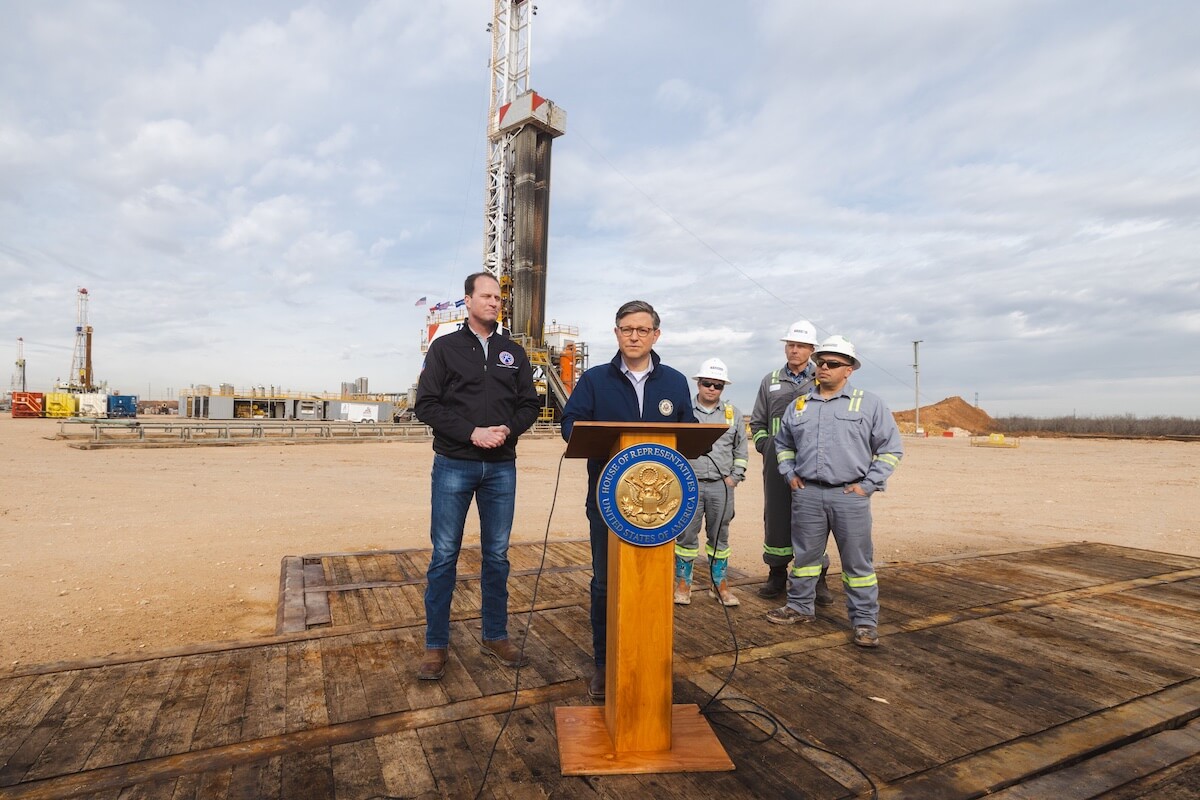ESG will continue to be a hot button in 2023. But research over the past year showed that environmental, social and governance investments are popular with businesses, investors, and the public who see their economic value.
Despite relentless attacks from anti-ESG operatives, companies and investors are expected to significantly grow commitments to sustainability and diversity. Here are 13 recent studies to share with clients and colleagues that demonstrate the power of ESG investments to drive positive returns and reduce risk.
1. Republicans’ attacks on ESG aren’t popular with voters (Penn State’s Center for the Business of Sustainability, Dec. 2022)
Voters believe companies should be able to conduct business while taking ESG risks into account without government interference. That’s according to a survey of 1,261 registered voters, and 18 congressional offices on ESG risks conducted by Penn State’s Center for the Business of Sustainability and communications firm ROKK Solutions.
Key findings:
- The majority of people (76%) feel companies play a vital role in society and should be held accountable to make a positive impact on the communities in which they operate. That was especially true among voters under the age of 45.
- This finding is consistent across political lines: the majority of Republicans (69%) and Democrats (82%) agreed.
2. 99% of Public Companies Expect to Invest in ESG Reporting Tech & Tools in Next 12 Months (Deloitte, Dec. 2022)
Executives at large U.S. companies are investing heavily in ESG data and reporting technologies as well as assigning new ESG-focused roles internally to meet rising stakeholder demand and approaching regulatory requirements. Deloitte surveyed 300 senior finance, accounting, sustainability, and legal executives from publicly owned companies with revenues greater than $500 million across various sectors.
Key findings:
- Well over half (57%) of companies have already implemented a cross-functional working group tasked with driving strategic attention to ESG.
- Virtually all (99%) respondents said that they were somewhat or very likely to invest in more disclosure-focused technology and tools in the next 12 months.
3. Most in Finance Support ESG, Despite Republican Attacks (Bloomberg, Dec. 2022)
A survey of 550 Bloomberg Terminal users shows that a majority support ESG, expecting it to become an integral part of running a business. The strategy, which takes environmental, social and governance issues into account, was deemed by the respondents as more than just a fad, with only a third believing that it was.
Key findings:
- More than half of survey respondents said they were taking action on ESG because it’s crucial to boosting corporate profits as opposed to having a positive impact on society and reducing carbon emissions.
- 62% of respondents said they were acting on ESG at the behest of their clients, while about three-fifths said they were doing so primarily to protect their companies’ reputations.
4. New Report Links Workplace Diversity to Financial Outperformance (As You Sow, Nov. 2022)
A report from As You Sow suggests a link between workplace diversity and financial outperformance. Greater representation of Black, Indigenous and People of Color (BIPOC) in management is associated with higher past financial performance. The rub: these companies often garner lower expected future performance from brokers, despite the evidence of better financial outcomes.
Key findings:
- Higher representation of Black, Indigenous, and people of color (BIPOC) employees in management has a positive relationship to a range of financial indicators, including higher cash flow, net profit, three- and five-year revenue, five-year return on equity (ROE), and stock performance.
- Five-year ROE has a slight negative association across all sectors when the representation of white managers increases.
5. Over 90% of Companies Planning to Increase Environmental Sustainability Budget Over Next Year (Honeywell, Nov. 2022)
Honeywell surveyed over 650 professionals involved in environmental sustainability initiatives for its annual Environmental Sustainability Index. The majority of respondents plan to increase their investments in these initiatives over the coming year.
Key findings:
- Nearly three-quarters of respondents said that their organizations plan to increase budgets for the next 12 months across four categories: energy evolution and efficiency, emissions reduction, pollution prevention and circularity/recycling. Nearly all (97%) are planning to increase the budget for at least one of the categories.
- Business leaders are satisfied with the results of their recent sustainability efforts, with around 90% reporting that they were “somewhat or extremely successful” with their prior 12-month goals across the four categories.
6. ESG-focused institutional investment seen soaring 84% to US$33.9 trillion in 2026 (PwC, Oct. 2022)
ESG-focused institutional investment is expected to outpace growth of the broader asset and wealth management market, surging by 84% in the next four years to nearly $34 trillion by 2026, according to PwC’s Asset and Wealth Management Revolution 2022 report.
Key findings:
- Nine out of ten asset managers surveyed by PwC believe integrating ESG into their investment strategy will improve overall returns. Some 60% of institutional investors said that ESG investing has already led to higher performance yields, while three-quarters now consider ESG to be part of their fiduciary duties.
- With a projected compound annual growth rate of 12.9%, ESG assets are on pace to constitute 21.5% of total global AuM within 5 years.
7. $4 Trillion ESG Dividend (Moore Global, Sept. 2022)
Companies adopting ESG practices have wider strategic benefits. Moore Global researched 8 major economies, identifying opportunities that could be game-changing for businesses affected by Covid and other supply chain disruptions, energy crises and chronic staff shortages.
Key findings:
- The potential ESG-related revenue uplift for the 1,262 large businesses the study engaged totaled $4 trillion – or $45 million for every firm.
- Businesses that express commitment to ESG have seen profits jump more than 9% over the past three years, and as many as 84% said that their ability to raise capital had become slightly or significantly easier.
8. Decarbonizing the energy system by 2050 could save trillions (University of Oxford, Sept. 2022)
A study from the Oxford Martin Programme on the Post-Carbon Transition reveals that an ambitious transition to green energy technologies could save trillions by decarbonizing the global energy system by 2050. The findings challenge long-held fears that transitioning to clean energy would be costly and damaging to the economy.
Key findings:
- Transitioning to a decarbonized energy system by around 2050 is expected to save the world at least $12 trillion compared to continuing our current levels of fossil fuel use.
- A transition to nearly 100% clean energy by 2050 results in lower energy system costs while providing more energy to the global economy, and expanding energy access to more people around the world.
9. ESG Investment Expected to More Than Double in the Next Three Years (Dow Jones, Sept. 2022)
Sustainable investing is a leading growth opportunity for investment professionals, indicates research from Dow Jones. However, a lack of reliable data regarding companies’ ESG practices remains an obstacle to achieving this goal. Dow Jones expects ESG investments to more than double in the next three years.
Key findings:
- 56% of financial professionals say traditional ways of valuing companies are inadequate for assessing sustainable investments, and that the quality of ESG data available today is not yet sufficient to make investment decisions (52%)
- Two-thirds (66%) of financial leaders say ESG investing is the number one driver for sustained, long-term growth.
10. Public Pension Plans Crossed Party Lines to Support ESG (Morningstar, Aug. 2022)
An analysis of public pension fund proxy votes revealed that support for 72 key ESG shareholder resolutions was strong across party lines. These resolutions covered critical issues such as climate change, pay equity, and workers’ rights. The results demonstrate the importance of public funds in leading the way toward sustainability.
Key findings:
- 90% of public pension funds – including 98% of funds in blue states and 80% of such funds in red states – showed support for key ESG resolutions in 2021.
- The Teacher Retirement System of Texas and the Employees Retirement System of Texas voted in support of ESG resolutions 97% and 85% of the time, respectively. One outlier: The Teachers Retirement System of Georgia, which voted against 99% of ESG proposals.
11. Deloitte research reveals inaction on climate change could cost the world’s economy US$178 trillion by 2070 (Deloitte, May 2022)
Deloitte’s latest report issued during the World Economic Forum’s annual meeting in Davos shows that without adequate action to address climate change, the global economy could suffer a $178 trillion loss over 50 years. This is equivalent to a 7.6% reduction in global GDP by 2070.
Key findings:
- On the plus side, if global leaders unite in a systemic net-zero transition, the global economy could see new five-decade gains of $43 trillion – a boost to global GDP of 3.8% in 2070.
- The transition will play out differently depending on region, according to Deloitte’s Global Turning Point report, which analyzed 15 geographies in Asia Pacific, Europe, and the Americas. Asia Pacific, which has acute exposure to climate events, could see the benefits of a low-carbon transition as early as the 2020s.
12. Americans Want to See Greater Transparency on ESG Issues and View Federal Requirements as a Key Lever for Increasing Disclosure (Just Capital, Feb. 2022)
Americans are overwhelmingly in favor of increased public disclosure on human capital and environmental impact metrics from America’s largest corporations, according to a survey conducted by JUST Capital and SSRS, in collaboration with Public Citizen and Ceres. They also endorse federal requirements to mandate standardized disclosure by a wide margin.
Key findings:
- 85% of Americans agree that companies need to disclose more about their business practices and impact on society.
- 80% or more say America’s largest companies have a great deal or some responsibility to provide for the financial security of their workforces, consider the communities in which they operate, and reduce environmental impact.
13. Does Ethical Diversity on Company Boards Impact Stock Prices? (Morgan Stanley, Jan. 2022)
Racial and ethnic diversity on corporate boards of large-cap companies has a positive impact on stock price, concluded researchers at Morgan Stanley. The investment bank studied the performance of 800 large-cap companies in the U.S., U.K., Canada and Australia from 2012 to 2020.
Key findings:
- Companies with the highest number of people of color on their boards logged returns that were 1.5% higher than those with the least.
- 80% of investors believe that companies with strong ESG practices can generate higher returns and make better long-term investments.
The research is clear: ESG has become a priority for companies as they look to meet stakeholder demands and upcoming regulatory requirements. This shift towards greater transparency has been supported across political lines, with both Republican and Democratic voters agreeing that companies should strive to make a positive impact on the communities in which they operate. Additionally, companies are taking the steps necessary to ensure their ESG reporting is up-to-date, with the majority investing in technology and tools to properly monitor and document their progress.
Despite misguided attacks, ESG practices seem to be here to stay.
Ryon Harms is the founder & CEO of Manifest Social.











